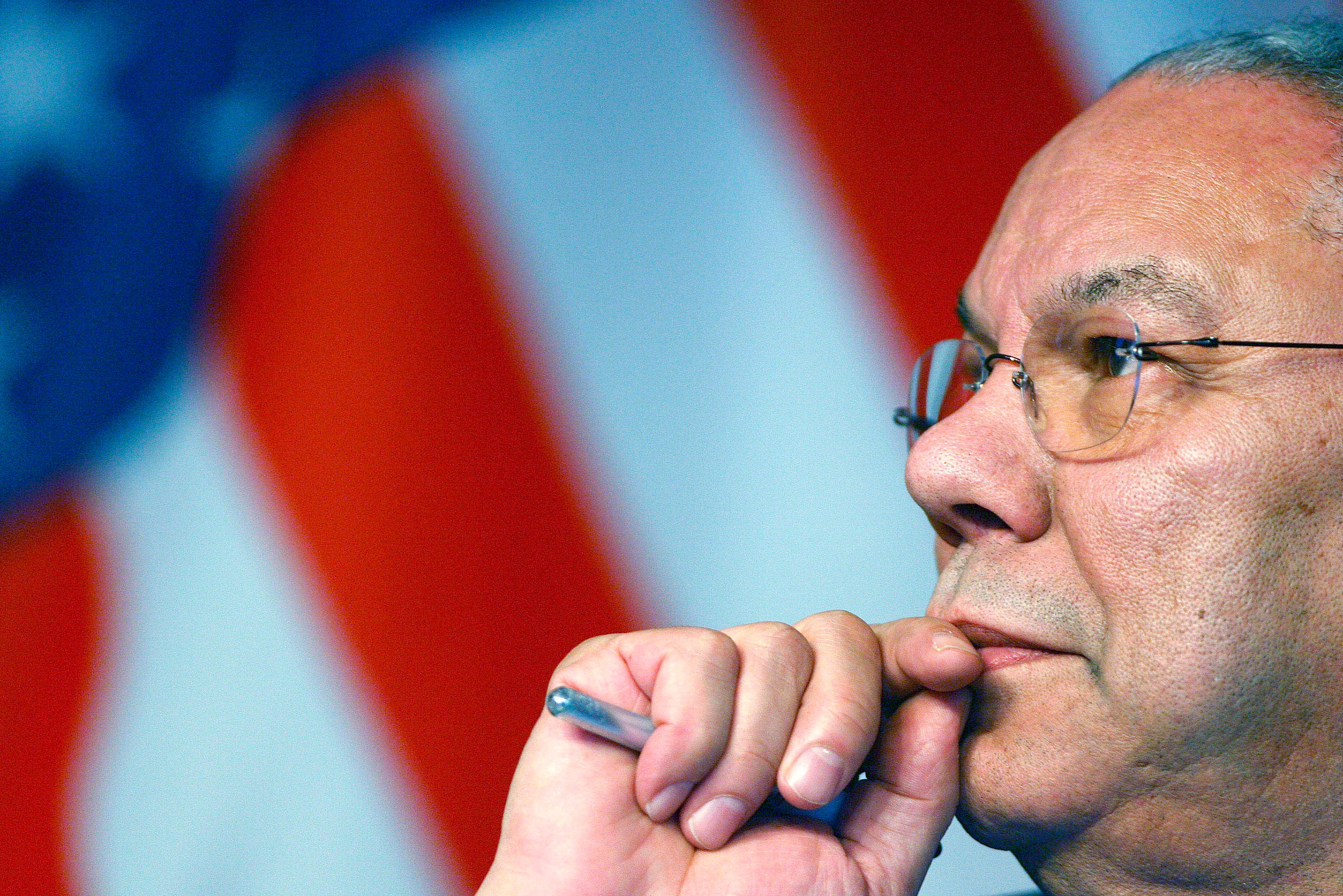Why do we focus on Colin Powell’s vaccine status and not the unvaccinated person who likely gave him Covid?
It’s vital for everyone – not just immunocompromised people, not just the elderly, but everyone – to get vaccinated


Your support helps us to tell the story
From reproductive rights to climate change to Big Tech, The Independent is on the ground when the story is developing. Whether it's investigating the financials of Elon Musk's pro-Trump PAC or producing our latest documentary, 'The A Word', which shines a light on the American women fighting for reproductive rights, we know how important it is to parse out the facts from the messaging.
At such a critical moment in US history, we need reporters on the ground. Your donation allows us to keep sending journalists to speak to both sides of the story.
The Independent is trusted by Americans across the entire political spectrum. And unlike many other quality news outlets, we choose not to lock Americans out of our reporting and analysis with paywalls. We believe quality journalism should be available to everyone, paid for by those who can afford it.
Your support makes all the difference.Fox News anchor John Roberts tweeted on Monday that former Secretary of State Colin Powell’s death from Covid-19 “raises new concerns about how effective vaccines are long-term”.
In fact, though, it’s his tweet that raises questions about the news media’s ability to report on major public health issues.
Roberts responsibly deleted his tweet and said that he had not intended to discourage people from getting vaccinated. But his initial impulse to spin a large moral about vaccine failure from an unusual case demonstrates the ways in which media norms can undermine accurate reporting on Covid.
Democrats say the media is biased towards Republicans; Republicans say it is biased towards Democrats. But one of the biggest media biases is nonpartisan. Reporters like to tell unusual and ideally frightening stories; man devours twelve dogs and is coming for yours. But emphasising outliers and striking events creates a false impression and dangerous incentives in a global pandemic.
It’s true that Colin Powell was fully vaccinated. He also had blood cancer, which weakened his immune system.
Immunocompromised people are more vulnerable to Covid even when they have been vaccinated. That’s why the CDC has especially recommended that immunocompromised people receive booster shots.
It’s also why it’s vital for everyone – not just immunocompromised people, not just the elderly, but everyone – to get vaccinated. Public health isn’t primarily a story about individual choices, individual freedoms, and high profile individual outcomes. It’s about collective responsibility and mutual protection.
Someone infected Colin Powell with Covid, and killed him. That person very likely was unvaccinated. We know that first of all because vaccinated people are much less likely to get Covid in the first place. “Vaccines provide the best protection against infection. And if someone isn’t infected, they can’t spread the coronavirus,” as Craig Spencer explained at the Atlantic.
Even when vaccinated people do experience a breakthrough infection, they’re less likely than vaccinated individuals to pass the illness on. It’s because around a third of people over 12 years old remain unvaccinated that we continue to have 1500 people a day dying from what should now be a preventable disease.
Powell’s story, then, isn’t really a story about a famous person who got vaccinated and nonetheless died. It’s a story about some unknown person who was not yet vaccinated, and who therefore spread a deadly disease. Or, more broadly, it’s about many, many such unvaccinated people inadvertently threatening the lives of their immunocompromised neighbors, friends, and family.
Similarly, the takeaway from Powell’s death isn’t that we should be afraid that vaccines don’t work. Rather, the takeaway is that we can make vaccines work – but doing that is a slow, collective effort that means being willing to use the correct public policy tools. There is mounting evidence, for example, that vaccine mandates at hospitals and airlines have been very effective at encouraging employees to get vaccines. The New York hospital system went from about 75 per cent vaccinated to 92 per cent vaccinated in a month-and-a-half.
But the bias towards journalism on the individual, the exciting, and the unusual also interferes with good reporting on mandates. Numerous venues reported over the weekend that ESPN reporter Allison Williams had decided to quit in response to the vaccine mandate at the network. “I cannot put a paycheck over principle,” she declared, before sharing disinformation about the vaccines effectiveness.
Stories centering Williams, even when they point out her misstatements, focus on the few people who are willing to give up their job for some confused idea of freedom. But it’s harder to create headlines about the people at ESPN who feel freed from fear and anxiety by the mandate – or who won’t get Covid and die because the mandate is in place. Like the perpetrators of public health harms, the beneficiaries are often anonymous and difficult to interview and quantify.
This isn’t to say that the media has entirely failed. On the contrary, there are links throughout this article to journalists and media sources informing the public about the efficacy of vaccines, the dangers of vaccine refusal, and the importance of mandates. Mainstream news media has played a central and vital role in helping people understand Covid and its dangers.
But it’s also important to recognise how media weaknesses have contributed and may continue to contribute to confusion and to our seemingly endless public health crisis. In a pandemic, the news is about the typical as much as the unusual, and about the people standing near Colin Powell as much as it’s about Colin Powell himself. Reporters need to get better at reporting the normal if we’re ever going to get to normal again.
Join our commenting forum
Join thought-provoking conversations, follow other Independent readers and see their replies
Comments